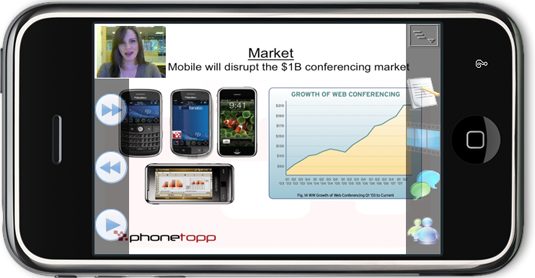 Over at Forbes.com, there’s an article on a worthwhile topic: iPhone applications for businessfolk. There are, however, some things about the piece that I just don’t understand. Such as the fact that it seems to argue that buying an iPhone will let you save money on the pens and paper you’d otherwise tote along when you travel. ($200 to $300 for the phone plus two years’ worth of service fees make for a hefty investment to avoid buying a few Bics and memo pads.)
Over at Forbes.com, there’s an article on a worthwhile topic: iPhone applications for businessfolk. There are, however, some things about the piece that I just don’t understand. Such as the fact that it seems to argue that buying an iPhone will let you save money on the pens and paper you’d otherwise tote along when you travel. ($200 to $300 for the phone plus two years’ worth of service fees make for a hefty investment to avoid buying a few Bics and memo pads.)
More important, I’m also mystified by this bit:
Gregg Brockway, president of TripIt, a start-up that organizes travel itineraries online and on mobile devices, says iPhones are the greatest gadgets that business travelers don’t know they have. “Smart-phone sales are up 80%, so the whole category is on fire,” Brockway says. “But only a third of business travelers who have a smart phone realize that they can access the Internet. Of the business travelers who do realize, only 50% of them use their phones to actually access the Internet.”



 I haven’t laid eyes on a
I haven’t laid eyes on a  The blogosphere is abuzz over John Markoff’s piece for the New York Times on a
The blogosphere is abuzz over John Markoff’s piece for the New York Times on a  How much does a new cell phone cost? How much do you save by committing to a contract? If there are savings to be had, how substantial are they? These would seem to be simple questions. They should be simple questions. But the strange, sneaky games that phone carriers play make it startlingly tough to get answers.
How much does a new cell phone cost? How much do you save by committing to a contract? If there are savings to be had, how substantial are they? These would seem to be simple questions. They should be simple questions. But the strange, sneaky games that phone carriers play make it startlingly tough to get answers.

 You’ve just spent two grand on
You’ve just spent two grand on